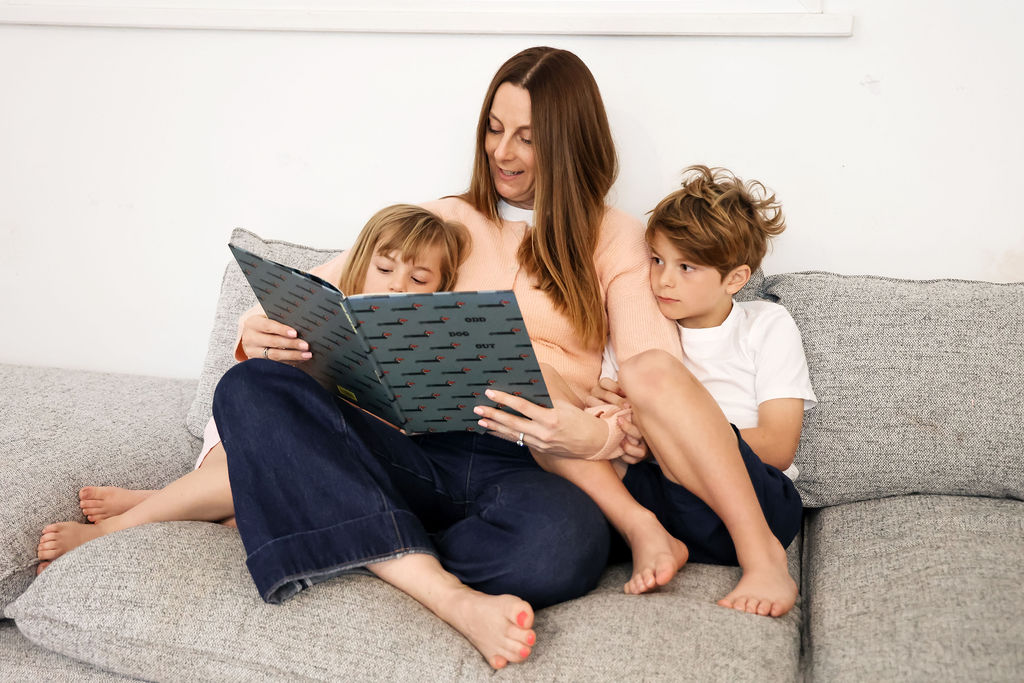At Spot, relationships come first. This aligns with our values, however, just as importantly we follow a relational care and service model because it is evidence based. Building strong relationships is the vital foundation of every therapeutic journey because our goal setting, strategies and of course data gathering will all be influenced by the connection we establish at the start. The Developmental, Individual-differences, Relationship-based (DIR®/Floortime™) approach is at the heart of how Spot’s occupational therapists and speech pathologists work with children and families. When we honour every person’s highest human need – connection – we set everybody up for flourishing.
DIR/Floortime is a developmental framework that helps therapists, families, and educators understand how each child processes the world. Rather than focusing on what a child can’t do, it begins with who they are, exploring their sensory profile, emotional world, interests, and strengths. From there, the therapist follows the child’s lead, creating moments of shared joy and curiosity that become the building blocks for communication, regulation, and learning.
It’s a model that aligns beautifully with Spot’s neurodiversity-affirming philosophy. We believe every child communicates, connects, and learns in their own way, and our job is to meet them there. The DIR Floortime approach in all therapies and across all ages, helps us achieve this alignment.
Kate Broderick, Spot’s founder and CEO, has long championed relationship-based therapy as the most powerful tool we have. As a dual-qualified speech pathologist and occupational therapist, and a mother of kids with disability, Kate leads with deep empathy and insight. Under her leadership, Spot has become a place where early-career clinicians learn that true progress doesn’t come from checklists or rigid programs, but from connection through approaches like the DIR Floortime approach in occupational therapy.
Kate has been instrumental in mentoring therapists to slow down, to listen deeply, and to find joy in each child’s world. Through supervision, training, and reflective practice, she supports her team to adopt the DIR/Floortime approach with authenticity, helping them build truly meaningful, lasting relationships with every family they support. This reflects the core of the DIR Floortime approach and trauma informed approach at Spot Therapy Hub.
Many universities today emphasise the importance of professional development, extra learning, and continuing education, and that’s vital. But too often, what’s missing is the emphasis on relationship. The truth is, you can complete every course and collect every certificate, but if you can’t connect with a child, if you can’t co-regulate, play, and build trust, you won’t see meaningful change.
That’s where practices like Spot make all the difference. We create an environment where therapists are supported to be human first, to reflect, to learn from each other, and to hold space for every client’s unique journey. We believe that growth, for both child and clinician, happens within safe, attuned relationships. The DIR Floortime approach in occupational therapy and speech pathology facilitates this growth.
As a neurodiversity-affirming practice, Spot doesn’t just talk about inclusion, we live it. We support our therapists to practice in ways that respect and celebrate every individual’s neurotype. DIR/Floortime isn’t a technique to apply; it’s a way of seeing, relating, and connecting. And it’s through this lens that our team continues to grow, guided by Kate’s leadership and her unwavering belief that relationship is the therapy.
At Spot, connection isn’t an extra, it’s everything.
